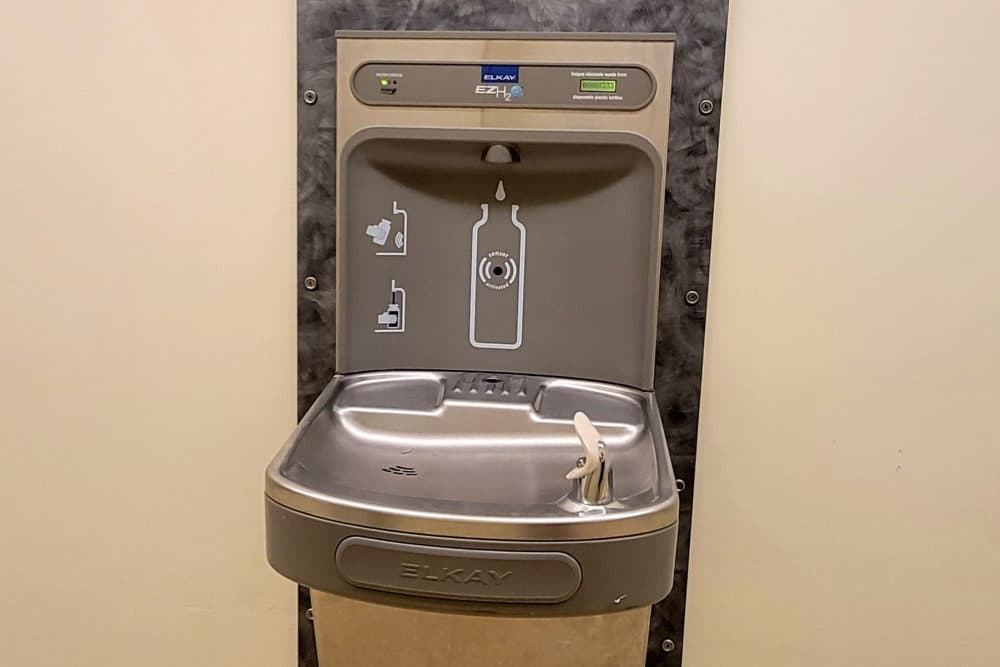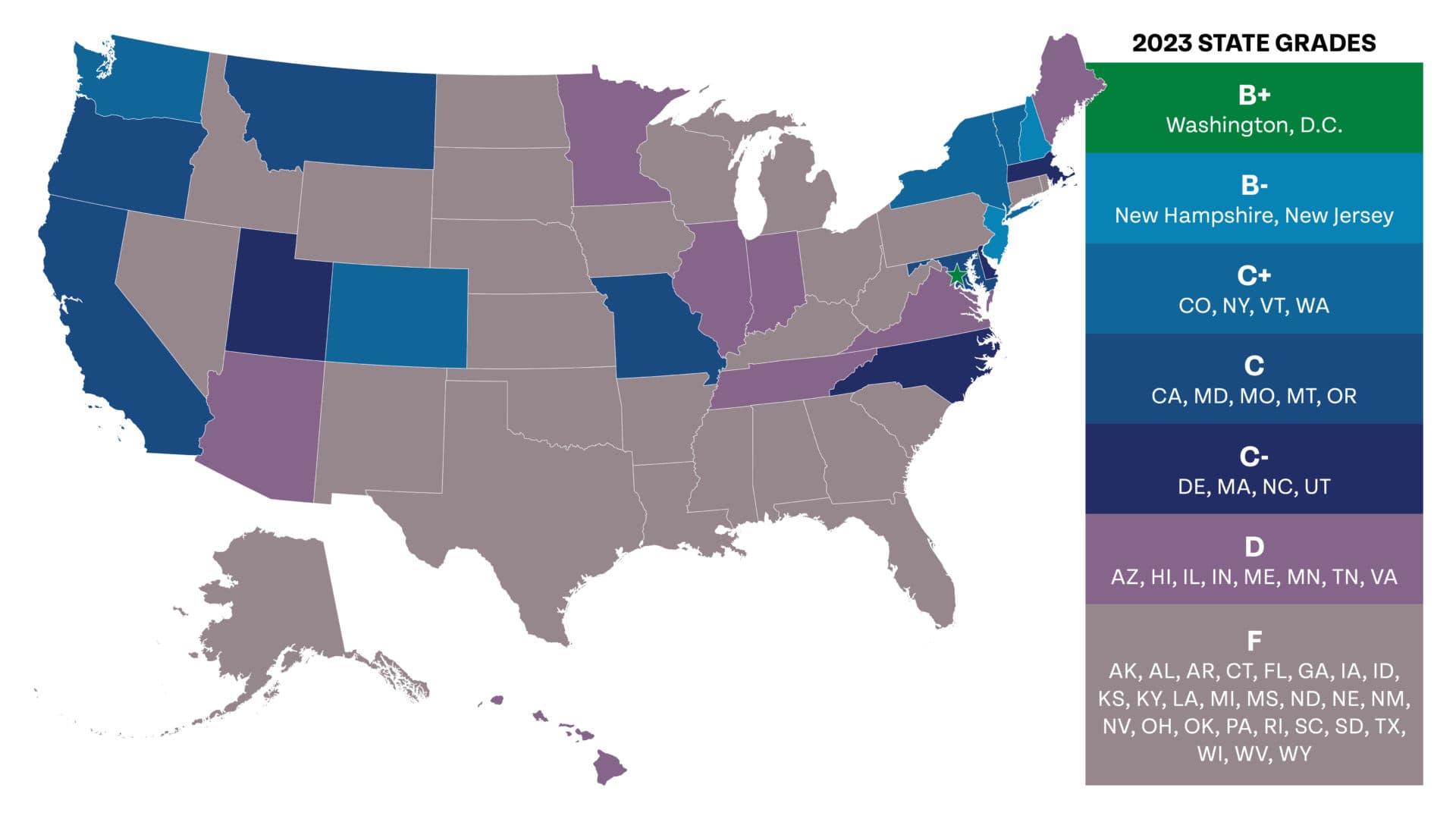Advertisement
Mass. gets a ‘C-’ in effort to address lead in school drinking water

In Massachusetts, there is no law requiring schools to test or improve lead levels in drinking water at schools and daycare centers. But the state launched a voluntary lead testing program several years ago that has been popular. Nearly 1,300 schools and 500 childcare facilities have participated in the program, according to a spokesperson for the Massachusetts Department of Environmental Protection.
These steps earned the Bay State a C- in a new report produced jointly by the Environment America Research and Policy Center and the U.S. Public Interest Research Group, two advocacy nonprofits. The commonwealth scored better than the majority of states, who earned an F for failing to take any incremental steps toward ensuring safe drinking water at schools, according to the report.
Some states, such as New Hampshire, Vermont, New York, Washington State, Maryland, scored higher than Massachusetts because they have mandatory lead testing programs for schools.
“Normally we would have just given Massachusetts a failing grade because really there's no enforceable law but, almost unique in the country, Massachusetts has an incredibly robust voluntary program,” said John Rumpler, co-author of the report and a senior attorney at the Environment America Research and Policy Center.

A bill in the State House would mandate annual lead testing at schools and require certain remedial steps, such as installing point-of-use filters at drinking water outlets. If that bill becomes law, Rumpler said, “that would really vault Massachusetts to the head of the class when it comes to ensuring safe drinking water in our kids’ schools.”
Lead is found in older pipes and plumbing fixtures and was often used in aging school buildings. It's poisonous when ingested — especially for children — and has been linked to developmental delays and neurological changes, among other health impacts. Yet, there are no federal regulations regarding monitoring or testing for lead in school drinking water.
Since 2014, when high levels of lead were found in Flint, Michigan, Rumpler’s organization has periodically surveyed all 50 states to evaluate local regulations.
“What we found is that some states have made some incremental progress. But on the whole, most states are really not doing enough,” he said.
Some advocates recommend proactively installing filters at drinking stations because test results can be highly variable. Even if lead is not detected in one sample, another sample from the same faucet might indicate high levels of lead. Marc Edwards, a lead expert at Virginia Tech, has compared lead testing to “Russian roulette.”
In 2016, MassDEP launched a voluntary program to help public and private schools as well as childcare facilities test drinking water for lead and copper. Participation in the ongoing program has been high, but so is the share of results showing unacceptable lead and copper levels.
In Brockton, 19 of the 24 schools and childcare facilities tested had lead levels above what’s deemed acceptable, according to the program.
“It was an eye opener,” said Mike Thomas, superintendent of schools in Brockton, who was deputy superintendent in 2017, when the testing took place. “I was like: ‘We got to really do something about this.’ ”
Thomas said he used emergency funds to start replacing sinks and water fountains, with each filtration unit costing close to $1,000. A team of in-house plumbers and electricians worked for roughly a year on the effort.
“We were in rough budget times but it was a commitment we made to really make sure that this was a top priority,” Thomas said. He now budgets for replacement filters and keeps a handful of extra filtration units in-stock at all times. There are roughly 200 such units throughout the district.
“Every hallway has one. Some have two or three. Every cafeteria has at least one, maybe two. Every gymnasium has one or two,” he said.
Thomas would like to see the state mandate lead testing and remediation, especially if it comes with funding to help school districts and daycare facilities pay for water filtration.
A spokesperson for MassDEP said there are state grants to help schools with the cost of purchasing and installing water bottle filling stations.
State. Sen. Joan Lovely, of Salem, introduced a bill called “The Safe Drinking Water at School Act,” which would set the threshold for acceptable lead levels at the lowest enforceable level in the nation. It also includes language that would make schools eligible to receive grants for lead remediation.
“It is unconscionable that in 2023, Massachusetts children continue to be exposed to this dangerous neurotoxin,” Lovely said in a written statement.
